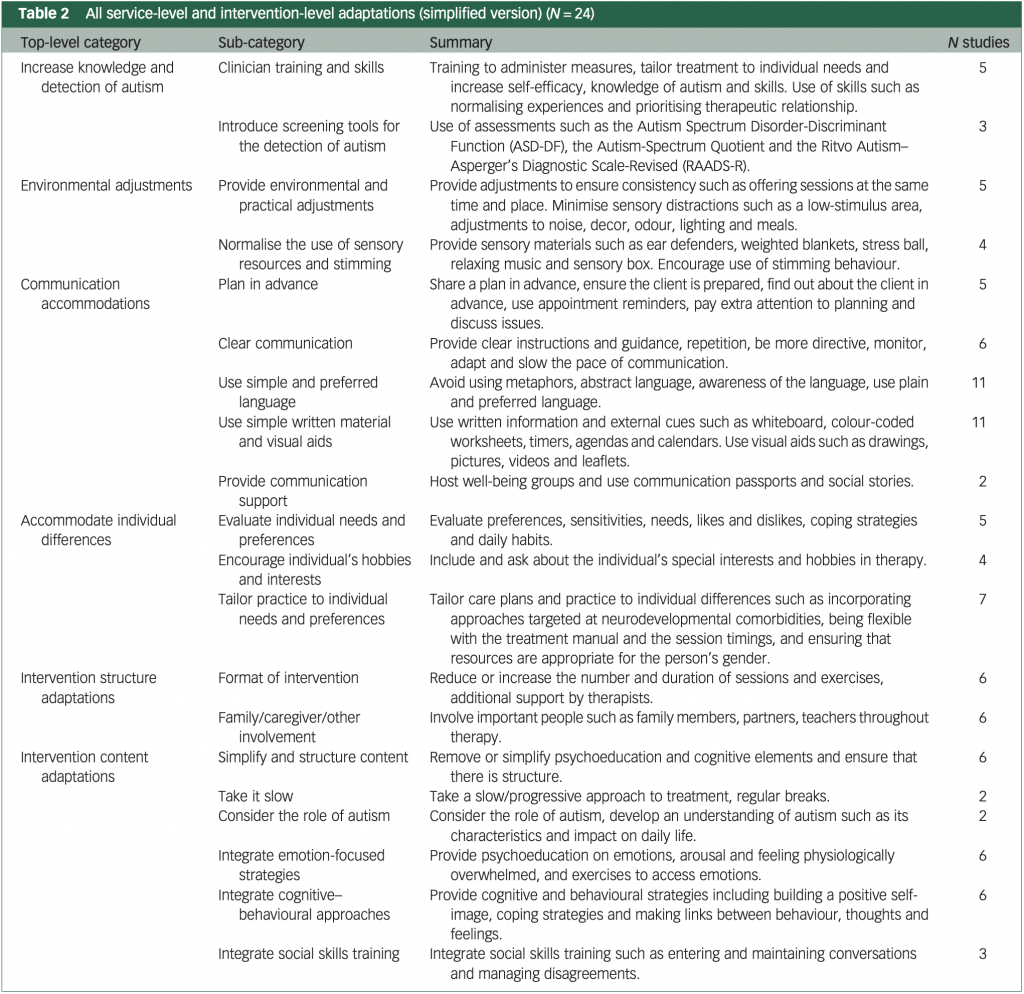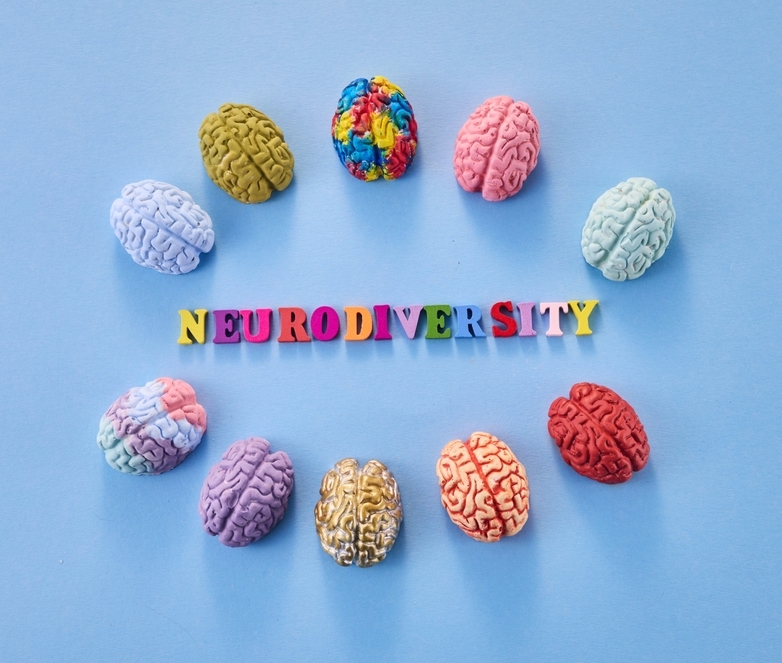Imagine the daily struggle of navigating a world that isn’t tailored for your unique experiences. For many autistic individuals, this overwhelming sensation is a constant challenge, particularly when it comes to their mental health.
autism is a lifelong developmental disability that significantly impacts communication and social interactions. Those on the spectrum may find it particularly difficult to grasp social cues or may feel intense discomfort in response to stimuli such as bright lights or loud noises (National Health Service, 2022). In fact, statistics reveal that more than 1 in 100 people are on the autism spectrum, encompassing approximately 700,000 autistic adults and children in the UK (National Autistic Society, n.d.).
Research indicates that autistic individuals are significantly more likely to encounter mental health challenges compared to the general population (Lai et al., 2019). Unfortunately, accessing effective mental health care remains a daunting task. UK health guidelines advocate for the recognition and treatment of co-occurring disorders such as anxiety and depression, yet many autistic individuals encounter substantial barriers, including prolonged waiting periods and services that are not tailored to their unique needs.
Addressing these barriers is of utmost importance. Recent research conducted an extensive review aimed at identifying effective strategies to enhance mental health care for autistic individuals (Loizou et al., 2024), concentrating on three pivotal questions:
- What strategies are currently being employed to enhance care for autistic individuals?
- Are these strategies perceived as acceptable and feasible by autistic individuals?
- How effective are these strategies in improving mental health outcomes?

Mental health care presents unique challenges for autistic individuals, who often face significant barriers despite being at elevated risk for mental health issues.
Comprehensive Research Methodology for Enhancing Mental Health Care
The authors conducted a thorough search across multiple databases including Medline, PsycINFO, CINAHL, medRxiv, and PsyArXiv for studies published between January 1994 and July 2022. They also meticulously reviewed reference lists from pertinent systematic reviews and consulted experts in the field for additional relevant papers.
Included in this review were studies that adhered to specific criteria, such as participants with a formal diagnosis of autism or those suspected of being on the spectrum, as well as perspectives from clinicians and caregivers regarding mental health interventions for autistic individuals.
Outcomes evaluated included feasibility, acceptability of care, mental health metrics, and overall quality of life. The review encompassed a wide range of study designs and service evaluations for the first two research questions, while empirical quantitative studies were focused on for the third question. The selection of studies was facilitated using Rayyan software, and full-text screening was conducted in accordance with the Cochrane guidelines (Higgins & Thomas, 2019).
The quality of the studies was assessed using the Mixed Methods Appraisal Tool, and findings were synthesized through narrative methods.
Key Findings on Strategies for Improving Mental Health Care for Autistic Individuals
Overview of Study Characteristics
The review included a total of 30 studies, which comprised five randomized controlled trials (RCTs) or pilot RCTs, three non-RCTs, three qualitative studies, one cross-sectional study, four surveys, four service evaluations, and ten before-after comparison studies. Notably, two of the studies originated from the same trial.
The overall quality of the included studies was found to be generally high. Of these, sixteen studies exhibited high quality (i.e., low risk of bias), while seven were of moderate quality, and seven were characterized as low quality.
Critical Insights and Adaptations in Mental Health Care
Mental health treatments tailored for autistic individuals, frequently based on Cognitive Behavioural Therapy (CBT), are undergoing modifications to effectively address issues such as anxiety, depression, and obsessive-compulsive disorder. These adaptations include enhancing communication, adjusting treatment content and structure, and personalizing therapeutic approaches.
Moreover, mental health services are evolving by improving communication strategies aimed at autistic individuals, assisting clinicians in better understanding and recognizing autism, and creating more accommodating environments.
Many of these adaptations align with the preferences of autistic adults, emphasizing the need for clearer communication, better-trained healthcare professionals, and more versatile therapeutic spaces. While enhancements in communication are widespread, modifications in the environment are less frequently implemented, indicating a significant opportunity for further improvements in mental health care for autistic individuals.
A complete list of adaptations can be found in Table 2 of the open-access review, which is provided below.

Table 2: Summary of Service-Level and Intervention-Level Adaptations (simplified version) (N = 24). [Click to view full-sized figure]
Innovative Adaptations in Cognitive Behavioral Therapy for Autistic Individuals
Cognitive Behavioral Therapy (CBT) is widely recognized as one of the most effective therapies for addressing various mental health conditions. However, traditional CBT approaches often do not meet the unique needs of autistic individuals. This review has brought to light several crucial adaptations such as:
- Utilizing clear, straightforward language while avoiding complex metaphors.
- Incorporating visual aids and written instructions to enhance understanding.
- Allowing extended time for therapy sessions or segmenting them into smaller, manageable parts.
These adjustments were positively received by autistic participants, who found them both practical and beneficial. Therapists reported that these modifications were easily implementable, suggesting that adapted CBT may hold great promise for improving therapeutic outcomes. Most interventions, including tailored CBT and personalized therapies, were considered acceptable to autistic individuals and feasible for therapists. Positive feedback emphasized the importance of clear communication, sensory accommodations, and the flexible pacing of therapy sessions.
Evaluating the Effectiveness of Adapted Therapies for Autistic Individuals
The evidence surrounding the effectiveness of these adaptations was less conclusive. While some studies indicated improvements in symptoms of anxiety and depression, the overall evidence was deemed insufficient to draw definitive conclusions. Notably, no trials directly compared adapted interventions with non-adapted ones, underscoring the pressing need for more rigorous trials to validate superior outcomes.
Adapting therapeutic approaches for autistic individuals has the potential to significantly enhance inclusivity and accessibility in mental health care. Nevertheless, challenges persist, such as the underrepresentation of diverse populations in studies, including individuals from ethnic minorities and those with intellectual disabilities. Addressing these gaps is essential to ensure that all autistic individuals receive the comprehensive care they deserve.
Mental health care should serve as a safety net rather than an obstacle. For those on the autism spectrum, access to compassionate and understanding care can be transformative. This review illustrates progress in the field, while simultaneously highlighting the ongoing need for dedicated efforts to improve services.
As a community, we must advocate for mental health services that are inclusive, effective, and empathetic. Even small modifications can lead to significant changes in the lives of autistic individuals, enabling them to thrive.

This review indicates that adapted Cognitive Behavioral Therapy—utilizing clear language, visual aids, and flexible pacing—was positively received by autistic individuals.
Insights on Autism-Adapted Mental Health Care
In summary, this review underscores the acceptability of numerous autism-adapted services and interventions, both at the service level and for individual autistic individuals, that aim to enhance their mental health care. The findings suggest that while evidence regarding effectiveness remains inconclusive, there are promising indicators.
To advance research efforts, there is a need for larger sample sizes and well-structured control groups, alongside the development of a co-produced mental health service improvement package that incorporates neurodivergence-informed approaches.

Modifying mental health therapies, such as enhancing the clarity and flexibility of CBT, can significantly improve care for autistic individuals, though further research is essential.
Strengths and Limitations of the Review
This review represents the first systematic examination, to the authors’ knowledge, of all efforts aimed at enhancing mental health care for autistic individuals. The interventions analyzed were implemented within real-world service settings, which adds to their relevance. The review spanned multiple dimensions—service, intervention, and individual—offering a comprehensive perspective on care tailored for autism. Furthermore, it addressed a diverse range of mental health conditions, enhancing the applicability of the findings. Importantly, two-thirds of the studies included were of moderate to high quality, reinforcing the validity of the conclusions drawn.
Nevertheless, bias emerged as a significant concern. Many studies reported low participation rates and a lack of diversity, predominantly featuring white male participants. Selection bias may have been introduced by the innovative population assessment method, and confirmation bias could have influenced findings due to the involvement of lived-experience researchers throughout the review process. Although measures were taken to mitigate publication bias, it remains a limitation, as relevant studies may not have been published, potentially skewing the findings. Additionally, only 10% of the initial title and abstract screenings were subjected to dual independent review, and the exclusion of qualitative metrics may have overlooked critical insights.
Confounding variables also posed challenges, as the majority of studies were non-RCTs, complicating the ability to isolate other influencing factors. Small sample sizes further heightened the risk of findings being due to chance, and the considerable heterogeneity among studies rendered meta-analysis impractical.

This review offers the first comprehensive examination of autism-adapted mental health care, yet it is not without limitations such as bias, small sample sizes, and gaps in diversity.
Practical Implications for Enhancing Mental Health Services
One of the key strengths of this review was the active involvement of lived-experience researchers, emphasizing the significance of co-production in the development of mental health services. Simple modifications, including clearer communication and environmental adjustments, can be easily integrated into practices without necessitating further RCTs. Additionally, incorporating autistic therapists into the workforce could further enhance services, as these professionals offer unique insights into effectively supporting autistic clients, fostering deeper understanding and trust.
Personalized treatment approaches are crucial, as autistic individuals may not respond to conventional therapies in the same manner as their non-autistic counterparts. A neurodivergence-informed strategy can bridge the gap between individualized treatment and evidence-based practices. Future research and service enhancements should also prioritize underrepresented demographics, including autistic individuals with intellectual disabilities, chronic mental health issues, and those from ethnic minority backgrounds.
Furthermore, there is a pressing need for tailored interventions specifically designed to address the unique challenges faced by autistic individuals. Ongoing research, advocacy, and co-produced solutions are vital to ensuring that mental health care becomes more accessible and effective for all.

Collaborative development of mental health services with autistic individuals can result in meaningful improvements as simple adjustments and neurodivergence-informed care enhance accessibility and outcomes.
Disclosure of Interests
The authors declare no conflicts of interest.
Acknowledgments and Contributors
Special thanks to the UCL Mental Health MSc students who contributed to this blog, particularly Yihong (Sherry) Cao, Isadora Miranda Gonzalez, Kalie Shun Yee Chan, and Qanita Fatima. Feedback and support were graciously provided by Hannah Gray (Study Group Co-Lead) to help bring this blog to fruition.
About UCL MSc in Mental Health Studies
This blog was crafted by a cohort of students enrolled in the Clinical Mental Health Sciences MSc program at University College London. A comprehensive list of blogs authored by UCL MSc students is available here.
We consistently publish blogs from individual students or groups of students attending universities affiliated with the National Elf Service. Reach out to us if you wish to learn more about how this collaboration could work for your institution.
References and Links to Further Reading
Primary Research Paper
Loizou, S., Pemovska, T., Stefanidou, T., Foye, U., Cooper, R., Kular, A., Greenburgh, A., Baldwin, H., Griffiths, J., Saunders, K.R., Barnett, P., Minchin, M., Brady, G., Ahmed, N., Parker, J., Chipp, B., Olive, R. R., Jackson, R., Timmerman, A., Sapiets, S., Driskell, E., Parsons, B., Spain, D., Totsika, V., Mandy, W., Pender, R., Clery, P., Trevillion, K., Lloyd-Evans, B., Simpson, A., & Johnson, S. (2024). Approaches to improving mental healthcare for autistic people: systematic review. BJPsych open, 10(4), e128. https://doi.org/10.1192/bjo.2024.707
Additional References
Higgins, J. P. T., Thomas, J., Chandler, J., Cumpston, M., Li, T., Page, M. J., & Welch, V. A. (2019). Cochrane Handbook for Systematic Reviews of Interventions (Second edition). Wiley. https://doi.org/10.1002/9781119536604
Lai, M. C., Kassee, C., Besney, R., Bonato, S., Hull, L., Mandy, W., Szatmari, P., & Ameis, S. H. (2019). Prevalence of co-occurring mental health diagnoses in the autism population: a systematic review and meta-analysis. The Lancet Psychiatry, 6(10), 819-829. https://doi.org/10.1016/S2215-0366(19)30289-5
National Autistic Society. (n.d.). What is autism? https://www.autism.org.uk/advice-and-guidance/what-is-autism
NHS. (2022, September 9). What is autism? https://www.nhs.uk/conditions/autism/what-is-autism/














